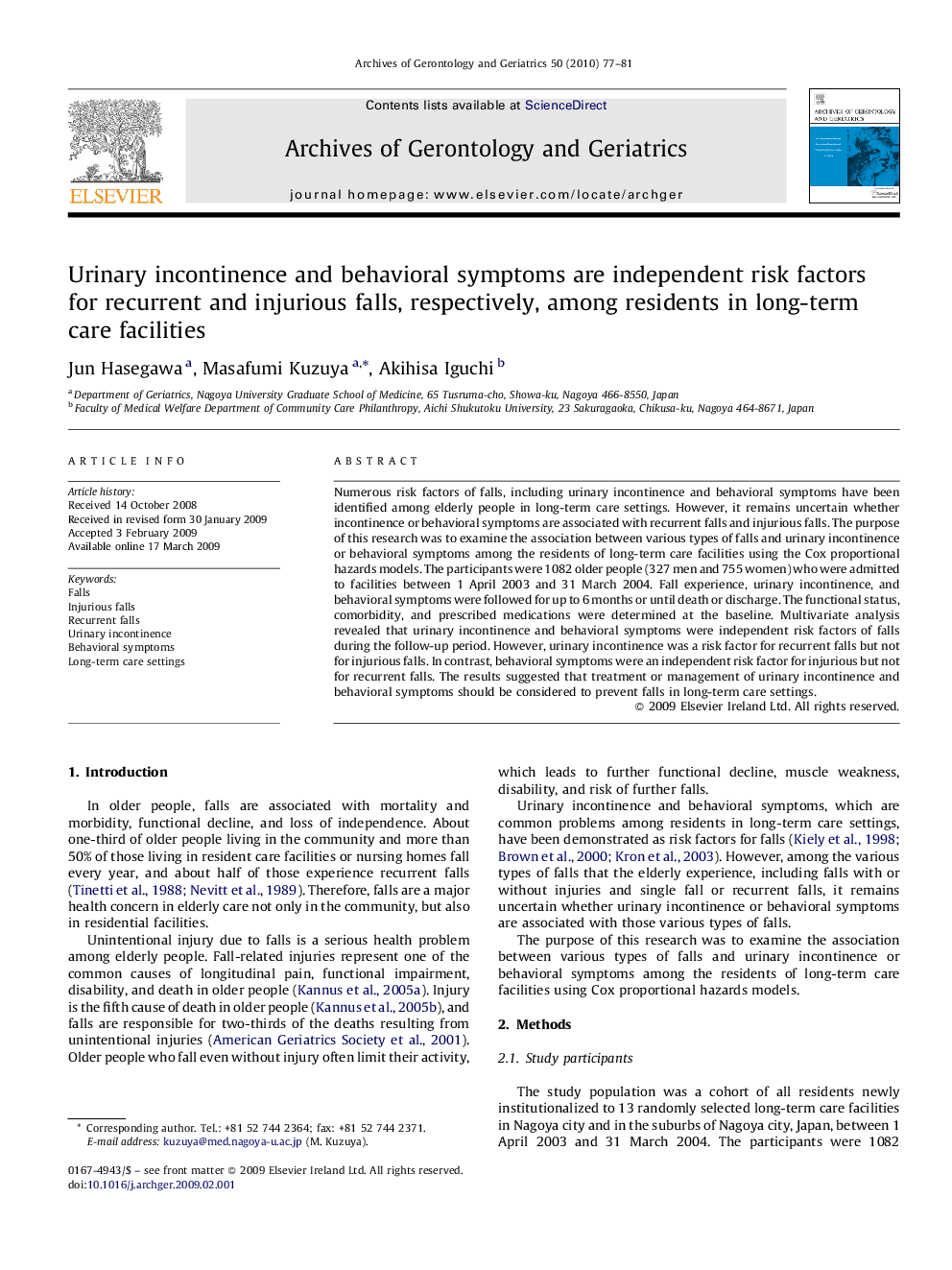| Article ID | Journal | Published Year | Pages | File Type |
|---|---|---|---|---|
| 1903960 | Archives of Gerontology and Geriatrics | 2010 | 5 Pages |
Numerous risk factors of falls, including urinary incontinence and behavioral symptoms have been identified among elderly people in long-term care settings. However, it remains uncertain whether incontinence or behavioral symptoms are associated with recurrent falls and injurious falls. The purpose of this research was to examine the association between various types of falls and urinary incontinence or behavioral symptoms among the residents of long-term care facilities using the Cox proportional hazards models. The participants were 1082 older people (327 men and 755 women) who were admitted to facilities between 1 April 2003 and 31 March 2004. Fall experience, urinary incontinence, and behavioral symptoms were followed for up to 6 months or until death or discharge. The functional status, comorbidity, and prescribed medications were determined at the baseline. Multivariate analysis revealed that urinary incontinence and behavioral symptoms were independent risk factors of falls during the follow-up period. However, urinary incontinence was a risk factor for recurrent falls but not for injurious falls. In contrast, behavioral symptoms were an independent risk factor for injurious but not for recurrent falls. The results suggested that treatment or management of urinary incontinence and behavioral symptoms should be considered to prevent falls in long-term care settings.
